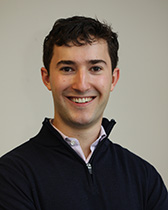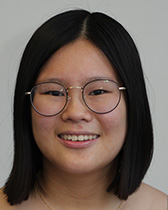Abe Rubin `25

Why did you apply to MMSS?
Like a lot of MMSS majors, I came into college knowing I loved math. But at 18 years old, that seemed to mean picking between two extremes: either use math to build things as an engineer, or go deep into abstract theory as a math major. Initially, I picked engineering, but with little confidence in my choice. When I learned about MMSS, I knew I had found the perfect fit. MMSS gave me the opportunity to take on challenging quantitative problems – the kind I had always enjoyed – but with a constant focus on real-world questions and real-world impact.
How has MMSS prepared you for graduation?
At its core, the MMSS major is about breaking complicated problems into their fundamental parts – and then building a story using data and numbers. Where you choose to apply this skill set is up to you. For me, it was political science. My first experience with Political Science research was in Professor Clipperton’s Formal Models in Social Science course my freshman year. It was the first time I saw how powerful the tools we were learning in MMSS could be in explaining how the world works. Three years later, I’m starting my masters in a quantitative political science program in the fall – a path tracing directly back to that class.
What have you enjoyed most about MMSS?
MMSS brings together people who are passionate about a multitude of subjects – the only thing we have in common is being part of MMSS. That means you’re surrounded by incredibly smart people interested in all sorts of topics. This is perhaps most visible in MMSS thesis projects – in my cohort, topics ranged from finance to housing to baseball to marijuana. Over my four years, I’ve gotten to know some of these people incredibly well. My problem set partner from sophomore year is someone I remain close with – we regularly share videos and ideas. I know the connections I’ve made in MMSS will persist long after graduation.

